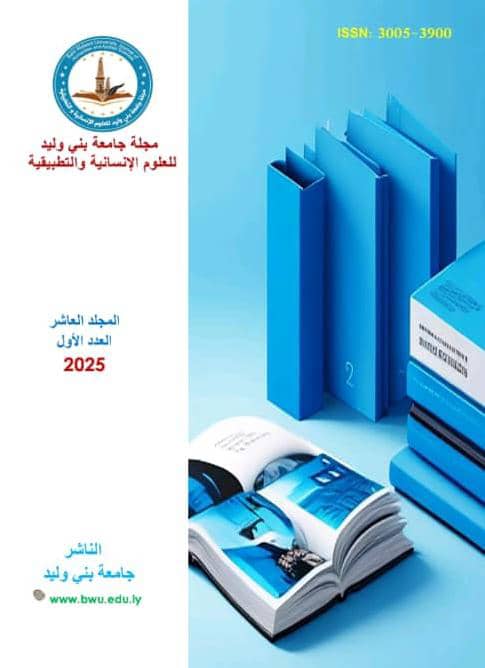Asceticism and immorality, the ancient and the modern In the poetry of Abu Nawas
DOI:
https://doi.org/10.58916/jhas.v10i1.703Keywords:
The method of the poem, the second century AH, Abu Nawas, foreign words, the structure of poetry, asceticism and immoralityAbstract
Most ancient and modern critics agreed that the second century AH was an era of distinction and development that occurred in literature in various aspects of poetry and prose. The entry of many peoples and tribes under the Islamic state had a great impact on the introduction of many new words and meanings that poets used in that period to create a new approach and structure for the Arabic poem, and a number of poets’ names shone. Those who helped in the poetic development in this era, the most famous of whom are Abu Nawas and Bashar Ibn Burd. One of the most prominent features of the development was the development of styles and words. Words in this era went beyond using foreign structures that entered them from the mixing between races, in addition to the emergence of jurisprudential, scientific, and philosophical terms. However, this led to the emergence of the phenomenon of melody and departure from the morphological standard, as well as the emergence of rhetoric and its development at the hands of Abu Nawas, who presented types of poetic arts, even among contradictions, and renewed them. This study revolves around this renewal.
Downloads
References
Ibn Manzur, Mukhtar al-Aghani, edited by Ibrahim al-Abyari, Egyptian House for Authorship and Translation Publications 1979
Al-Khatib al-Baghdadi - History of Baghdad, Dar al-Fikr al-Arabi, Beirut 1998
Ibn Duraid, al-Ishtiqaq, edited by Abdul Salam Muhammad Harun, Dar al-Jeel Publications, Beirut 1993
Ibn al-Mu'tazz, Tabaqat al-Shu'ara, edited by Abdul Sattar Ahmad Faraj, Egyptian House of Knowledge, 2nd ed. -1968
Ibn Khallikan, Deaths of Notables, edited by Ihsan Abbas, Dar Sadir, Beirut 1969
Dr. Shawqi Dayf, The First Abbasid Era, Dar Al-Maaref Publications, Cairo, 2nd ed.-1986
Abu Hafan, Akhbar Abi Nawas, edited by Abdul Sattar Faraj, Dar Misr Printing Publications, 1953
Ibn Qutaybah, Poetry and Poets, edited by Ahmed Mohamed Shaker, Dar Al-Maaref Publications, Cairo, 1967
Abu Al-Farah, Al-Aghani, explained by Abdel Ali Mahna, Dar Al-Kotob Al-Ilmiyyah Publications, Beirut, 1972
Al-Jahiz, Al-Hayawan, edited by Mohamed Abdel Salam Haroun, Dar Al-Jeel Publications, Beirut, 1988
Abu Hilal Al-Askari, Al-Sina’atayn, edited by Mohamed Abu Al-Fadl Ibrahim, Dar Ihya Al-Kotob Al-Ilmiyyah Publications, Cairo, 1962
Ahlam Al-Zaim, Readings in Abbasid Literature - The Poetic Movement, Dar Sadir Publications, 1995
Dr. Abdul Karim Al-Ashtar, Why Did the Attempt at Renewal Fail at the Hands of Abu Nawas?, Al-Baath Newspaper: Issue 6646, dated 1984.12.16
- Diwan of Abu Nawas, edited by Ahmed Abdel Majeed Al-Ghazali, published by Dar Al-Kitab Al-Arabi, Beirut 1980









